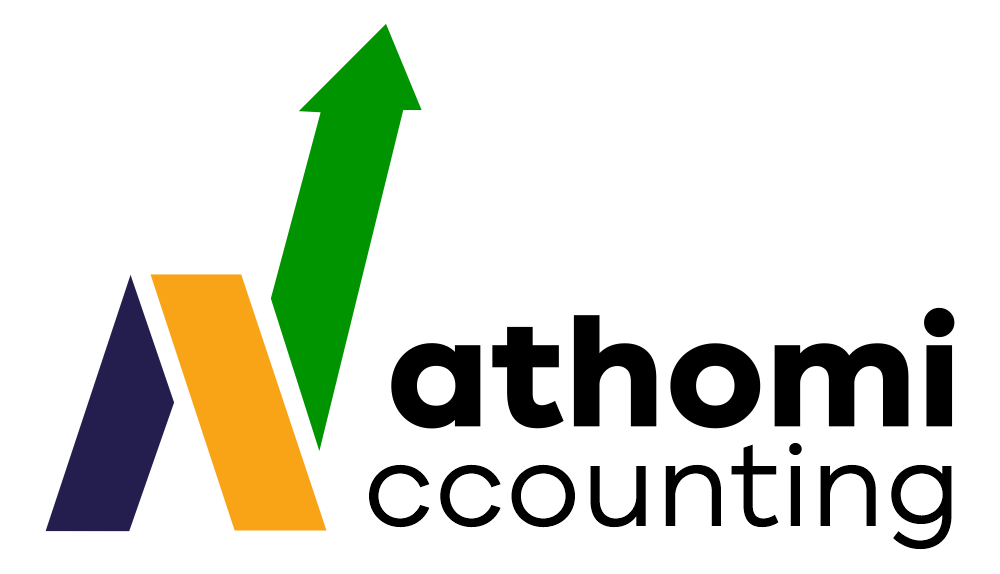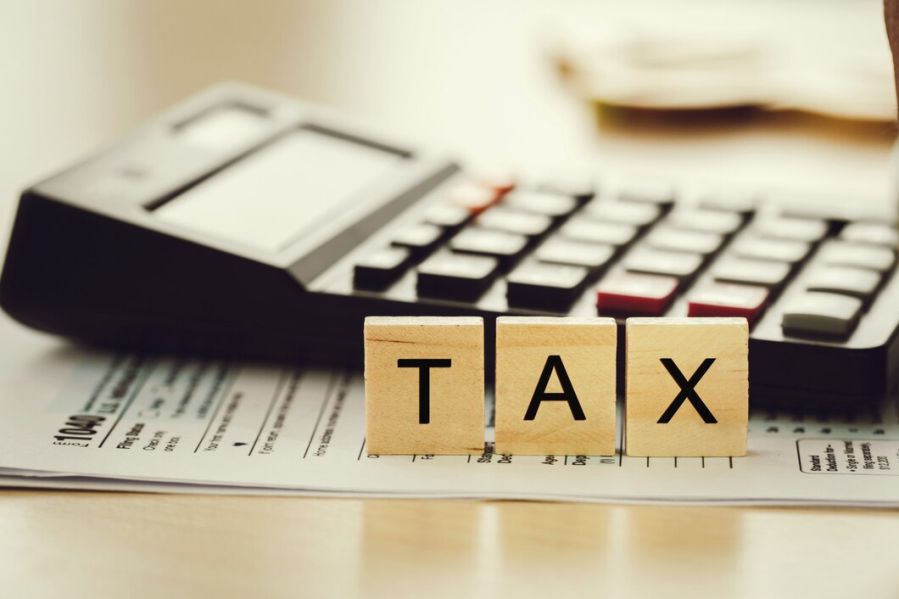9 Easy Ways to Optimize Personal Tax Liabilities
Introduction:
Are you tired of paying more taxes than necessary? You’re not alone. Many UK residents struggle to navigate the complex tax system, missing out on valuable deductions and reliefs that could save them hundreds or even thousands of pounds each year.
The good news? Optimizing your personal tax liabilities doesn’t have to be a headache. With a few simple strategies and a bit of know-how, you can easily reduce your tax burden and keep more of your hard-earned money in your pocket.
In this comprehensive guide, we’ll walk you through 9 easy ways to optimize your personal tax liabilities in the UK . From maximizing deductions to investing in tax-efficient vehicles, we’ve got you covered.
Ready to take control of your taxes and save big? Let’s dive in.
Maximize Your Tax Deductions and Save Money on Your Personal Taxes
- Claim all eligible tax deductions to reduce your taxable income
- Utilize tax-free personal allowances for savings, dividends, and capital gains
- Keep accurate records and consult with a tax professional to optimize your deductions
Claim All Eligible Tax Deductions for Individuals
Reducing your taxable income is a key strategy for minimizing your personal tax liabilities. To do this effectively, you must stay informed about all the tax deductions available to you as an individual taxpayer in the UK.
Start by keeping meticulous records of all your deductible expenses throughout the year. This includes donations to registered charities, professional subscriptions related to your work, and any expenses incurred while performing your job duties. Maintaining a spreadsheet or using a dedicated expense tracking app can help you stay organized and ensure you don’t miss any potential deductions.
Some common deductions for individuals include:
- Charitable donations to registered organizations
- Professional subscriptions and membership fees
- Work-related expenses, such as travel costs and home office expenses
- Pension contributions (up to certain limits)
Consult with a Tax Professional
To make the most of your eligible deductions, consider working with a qualified tax professional. They can help you identify deductions you may have overlooked and guide you through the process of claiming them on your tax return. A tax expert can also advise you on the documentation required to support your deductions in case of an audit.
Take Advantage of Tax-Free Personal Allowances
In addition to deductions, the UK tax system offers several tax-free personal allowances that can help reduce your taxable income. For the 2023-2024 tax year, the standard personal allowance is £12,570. This means you can earn up to this amount without paying any income tax.
It’s essential to understand how your personal allowance affects your taxable income and to adjust your financial strategies accordingly. If your income exceeds the personal allowance threshold, you’ll start paying income tax on the amount above the threshold.
Moreover, there are tax-free allowances for savings interest, dividends, and capital gains. By utilizing these allowances effectively, you can minimize your tax burden and keep more of your hard-earned money.
Transferring Unused Personal Allowances
If you’re married or in a civil partnership, you may be able to transfer any unused personal allowance to your partner. This is known as the Marriage Allowance and can be beneficial if one partner earns less than the personal allowance while the other is a basic-rate taxpayer.
By transferring the unused allowance, you can reduce your partner’s taxable income and, consequently, their tax bill. To be eligible for this allowance, the lower-earning partner must have an income below the personal allowance threshold.
When it comes to paying yourself from your business in the most tax-efficient manner, the optimal approach depends on your specific circumstances and business structure. For instance, if you operate as a sole trader or partnership, you’ll typically pay yourself through drawings from the business profits. In this case, you’ll be taxed on your share of the profits through the self-assessment process.
If you run a limited company, you have more options for tax-efficient remuneration. A common approach is to pay yourself a combination of a low salary (up to the National Insurance threshold) and dividends from the company’s profits. This can help minimize your personal income tax and National Insurance contributions while still allowing you to extract profits from the business.
Invest in Tax-Efficient Vehicles to Minimize Your Tax Burden
- Reduce your taxable income by contributing to pension schemes and ISAs
- Maximize your annual allowances to save money on taxes
- Explore different types of pensions and ISAs to find the best fit for your financial goals
Contribute to a Pension Scheme
Pension contributions are an excellent way to reduce your taxable income and save for retirement simultaneously. When you contribute to a pension scheme, the amount you contribute is deducted from your taxable income, effectively lowering your tax bill.
There are several types of pension schemes to choose from, including personal pensions, workplace pensions, and self-invested personal pensions (SIPPs). Personal pensions are set up by individuals, while workplace pensions are provided by employers. SIPPs offer more flexibility in terms of investment options but require more hands-on management.
Be aware of pension allowances
It’s important to be aware of the annual and lifetime pension allowances to avoid unnecessary taxes. The annual allowance is the maximum amount you can contribute to your pension each year while still receiving tax relief. As of 2024, the annual allowance is £40,000 or 100% of your earnings, whichever is lower.
The lifetime allowance is the maximum amount you can save in your pension over your lifetime without incurring additional taxes. The lifetime allowance for the 2024/25 tax year is £1,073,100. If your pension savings exceed this amount, you may be subject to additional taxes when you start drawing from your pension.
Invest in Individual Savings Accounts (ISAs)
Individual Savings Accounts (ISAs) are another tax-efficient way to save and invest your money. Interest, dividends, and capital gains earned within an ISA are tax-free, making them an attractive option for reducing your overall tax burden.
There are several types of ISAs to choose from, each with its own set of rules and benefits:
- Cash ISAs: These are savings accounts where you don’t pay tax on the interest earned.
- Stocks and Shares ISAs: These allow you to invest in stocks, bonds, and funds without paying tax on the returns.
- Innovative Finance ISAs: These allow you to invest in peer-to-peer lending platforms and receive tax-free interest.
- Lifetime ISAs: These are designed to help you save for your first home or retirement, with the government providing a 25% bonus on contributions up to £4,000 per year.
Utilize your annual ISA allowance
As of 2024, the annual ISA allowance is £20,000. This means you can save or invest up to £20,000 across all your ISAs each tax year without paying any tax on the returns. It’s important to utilize as much of your annual allowance as possible to maximize your tax-free savings and investments.
If you don’t use your entire allowance in one tax year, it doesn’t roll over to the next year, so it’s a case of “use it or lose it.” However, you can split your allowance across different types of ISAs to diversify your savings and investments.
By contributing to pension schemes and investing in ISAs, you can significantly reduce your taxable income and minimize your overall tax burden. These tax-efficient vehicles not only help you save money on taxes in the short term but also provide long-term benefits for your financial future.
Implement Effective Tax Planning Strategies Throughout the Year
- Maximize your tax savings by planning your income and expenses strategically
- Utilize tax-efficient business structures to minimize your tax obligations
- Stay informed about tax deductions, allowances, and reliefs available to you
Plan Your Income and Expenses
One of the most effective ways to reduce your tax bill as a self-employed individual in the UK is to plan your income and expenses strategically. By spreading your income across tax years, you can avoid moving into higher tax brackets. For example, if you’re close to the higher tax bracket threshold, consider deferring some of your income to the next tax year to remain in the lower bracket.
Similarly, you can bring forward expenses when appropriate to optimize your tax position. If you anticipate having a higher income in the current tax year, consider making business purchases or investments before the end of the tax year to offset your taxable income.
Incorporating Your Business
Another strategy to consider is incorporating your business. By operating as a limited company, you can take advantage of lower corporate tax rates compared to personal income tax rates. As of 2024, the corporate tax rate in the UK is 19% for profits up to £50,000, which is lower than the higher and additional personal income tax rates.
Utilize Tax-Efficient Business Structures
Choosing the right business structure is crucial for minimizing your tax obligations. In the UK, self-employed individuals can operate as sole traders, partnerships, limited companies, or limited liability partnerships (LLPs). Each structure has different tax implications, so it’s essential to select the most tax-efficient one based on your business needs and personal circumstances.
Sole traders are subject to income tax and National Insurance Contributions (NICs) on their profits. Partnerships are similar, but the profits are shared among the partners, who are each responsible for paying their own income tax and NICs. Limited companies, as mentioned earlier, benefit from lower corporate tax rates but also have additional compliance requirements. LLPs combine the tax efficiency of partnerships with the limited liability of companies.
Claim All Eligible Business Expenses
It’s important to regularly review your business structure and make changes as necessary to minimize taxes. As your business grows and your personal circumstances change, a different structure may become more advantageous. For example, if your profits increase significantly, incorporating your business might result in substantial tax savings.
As a self-employed individual, you can reduce your taxable income by claiming all eligible business expenses. These expenses include items such as office rent, equipment, supplies, travel costs, and professional fees. By keeping accurate records and claiming these expenses, you can lower your taxable profits and, consequently, your tax bill.
It’s essential to understand the rules surrounding business expenses to ensure you’re claiming only what’s allowed. Generally, expenses must be wholly and exclusively incurred for business purposes. If an expense has both business and personal elements, you can only claim the business portion.
Make Use of Tax Deductions, Allowances, and Reliefs
In addition to claiming business expenses, there are various tax deductions, allowances, and reliefs available to self-employed individuals in the UK. These include:
- Annual Investment Allowance (AIA): This allows you to deduct the full cost of qualifying assets, such as machinery and equipment, up to a certain limit in the year of purchase.
- Capital Allowances: For assets not covered by the AIA, you can claim capital allowances to deduct a portion of the cost each year.
- Trading Allowance: If your annual turnover is less than £1,000, you may be eligible for the trading allowance, which allows you to earn up to this amount tax-free.
- Business Rates Relief: If you work from home, you may be able to claim a portion of your home-related expenses, such as utilities and mortgage interest, as business expenses.
Plan for Tax Payments and Maintain Accurate Records
As a self-employed individual, it’s crucial to plan for your tax payments throughout the year. In the UK, self-employed individuals are required to make payments on account twice a year, in addition to a balancing payment after filing their annual Self Assessment tax return.
To ensure you have sufficient funds to meet your tax obligations, it’s recommended to set aside a portion of your earnings specifically for taxes. A general rule of thumb is to save around 20-30% of your profits for taxes, but the exact percentage may vary depending on your income level and personal circumstances.
Maintaining accurate financial records is also essential for effective tax planning. Keep track of all your income, expenses, and any other relevant transactions throughout the year. This will not only make it easier to complete your tax return but also help you identify areas where you can optimize your tax position.
By implementing these tax planning strategies consistently throughout the year, self-employed individuals in the UK can minimize their tax liabilities and keep more of their hard-earned profits. Remember to stay informed about changes in tax regulations and seek professional advice when necessary to ensure you’re making the most tax-efficient decisions for your business.
Understanding the UK Tax System and Your Obligations
- Familiarize yourself with the different types of taxes and how they apply to your personal situation
- Stay on top of your tax obligations to avoid penalties and interest charges
- Keep accurate records and seek professional advice when needed
Income Tax Basics
It’s essential to understand how your income is taxed and when you need to file a tax return. If you’re employed, your employer will usually deduct income tax through the Pay As You Earn (PAYE) system. However, if you have additional income sources or your tax affairs are more complex, you may need to file a Self Assessment tax return.
National Insurance Contributions (NICs)
National Insurance is a tax on earnings that funds various state benefits, such as the NHS, state pension, and unemployment benefits. The amount you pay depends on your employment status and how much you earn.
If you’re employed, you’ll pay Class 1 NICs. For the 2024/2025 tax year, you’ll pay 12% on earnings between £242 and £967 per week (£12,584 to £50,284 per year) and 2% on earnings above £967 per week. If you’re self-employed, you’ll pay Class 2 and Class 4 NICs. Class 2 NICs are a flat rate of £3.15 per week if your profits are above £6,725 per year. Class 4 NICs are 9% on profits between £9,881 and £50,270 and 2% on profits above £50,270.
It’s important to consider making voluntary contributions to fill gaps in your NIC record, as this can affect your entitlement to certain state benefits, such as the state pension. You can check your NIC record on the government’s website and make voluntary contributions if needed
Value Added Tax (VAT)
Value Added Tax (VAT) is a tax on goods and services. If you’re a business owner, you may need to register for VAT depending on your turnover. The current VAT registration threshold is £85,000. Once registered, you’ll need to charge VAT on your goods and services and submit VAT returns to HMRC.
There are different VAT schemes available, such as the Flat Rate Scheme and the Cash Accounting Scheme, which may be more suitable for your business depending on its size and structure. It’s essential to keep accurate records of VAT collected and paid to ensure timely and correct VAT returns. Failure to do so can result in penalties and interest charges.
Capital Gains Tax (CGT)
Capital Gains Tax is a tax on the profit you make when you sell or dispose of an asset that has increased in value. This can include property (other than your main residence), shares, and other investments. The CGT rate for the 2024/2025 tax year is 10% for basic rate taxpayers and 20% for higher and additional rate taxpayers. However, there are some exceptions, such as a higher 18% and 28% rate for gains on residential property.
Each individual has a CGT allowance, which is £12,300 for the 2024/2025 tax year. This means you only pay CGT on gains above this amount. It’s important to keep accurate records of your assets, including purchase and sale prices, as well as any improvements made, to calculate your CGT liability correctly.
Inheritance Tax (IHT)
Inheritance Tax is a tax on the estate (property, money, and possessions) of someone who has passed away. The current IHT threshold, also known as the nil-rate band, is £325,000. This means that if the total value of your estate is below this amount, no IHT is payable.
However, if your estate exceeds this threshold, IHT is charged at 40% on the amount above £325,000. There are some exemptions and reliefs available, such as the residence nil-rate band, which can increase your IHT threshold if you leave your main residence to your children or grandchildren.
It’s essential to understand how IHT works and to plan accordingly. This may involve making gifts during your lifetime, setting up trusts, or ensuring that your will is up to date and tax-efficient. Seeking professional advice from a financial advisor or tax specialist can help you navigate the complexities of IHT and ensure that your loved ones are provided for in the most tax-efficient manner.
Seek Professional Advice for Complex Tax Situations
- Navigating complex tax situations can be overwhelming
- Seeking professional advice can help you minimize your tax liabilities
- Staying informed about tax law changes is crucial for effective tax planning
Work with a Qualified Tax Accountant or Financial Advisor
When it comes to complex tax situations, it’s essential to consult with a qualified tax accountant or financial advisor. These professionals have the expertise and knowledge to guide you through the intricacies of the UK tax system, ensuring that you’re taking advantage of all available tax reliefs and allowances.
A skilled tax accountant can provide valuable advice on tax-efficient investment strategies tailored to your personal circumstances. They can help you structure your investments in a way that minimizes your tax liabilities while maximizing your returns. This may involve utilizing tax-advantaged accounts such as Individual Savings Accounts (ISAs) or Self-Invested Personal Pensions (SIPPs).
Moreover, working with a professional ensures compliance with UK tax laws and regulations. Tax laws are subject to frequent changes, and failing to comply with these changes can result in penalties and interest charges. A qualified tax accountant stays up-to-date with the latest tax legislation and can help you avoid costly mistakes.
Choosing the Right Tax Professional
When selecting a tax accountant or financial advisor, it’s crucial to choose someone with the appropriate qualifications and experience. Look for professionals who are registered with recognized bodies such as the Institute of Chartered Accountants in England and Wales (ICAEW) or the Chartered Institute of Taxation (CIOT).
Consider asking for referrals from trusted friends, family members, or colleagues who have worked with tax professionals in the past. You can also research potential candidates online, reading reviews and testimonials from previous clients.
Before engaging a tax professional, schedule an initial consultation to discuss your specific needs and assess whether they are a good fit for your situation. Don’t hesitate to ask questions about their experience, qualifications, and approach to tax planning.
Stay Informed About Tax Law Changes and Updates
In addition to working with a professional, it’s important to stay informed about tax law changes and updates that may affect your personal tax liabilities. The UK tax system is subject to frequent amendments, often announced during the annual budget or through other government publications.
To stay up-to-date, consider subscribing to newsletters or blogs from reputable tax and financial websites. These resources often provide timely updates and analysis of tax law changes, helping you understand how they may impact your personal tax situation.
Attending seminars or webinars on personal tax planning can also be a valuable way to stay informed and educated. These events often feature tax experts who share insights and strategies for minimizing tax liabilities and navigating complex tax situations.
Key Tax Law Changes to Watch For
Some recent tax law changes that may affect your personal tax liabilities include:
- Changes to the personal allowance and income tax thresholds, as outlined by UK
- Amendments to capital gains tax rates and allowances, detailed by UK
- Updates to inheritance tax rules and exemptions, as explained by UK
- Modifications to pension contribution limits and tax relief, as described by UK
By staying informed about these changes, you can proactively adjust your tax planning strategies to minimize your liabilities and ensure compliance with the latest regulations.

The Importance of Accurate Record-Keeping and Timely Tax Payments
Stay organized with financial records to simplify tax filing and avoid penalties
Submit tax returns and payments before the deadlines to prevent interest charges
Claim tax refunds and reliefs promptly to improve cash flow and invest in your future
Maintain Organized Financial Records
Keeping your financial records organized is essential for accurate tax reporting and stress-free filing. Start by dedicating a space for storing receipts, invoices, and bank statements. Consider using a physical filing system, such as labeled folders or envelopes, or go digital with cloud storage and scanning apps. The key is to make your records easily accessible when you need them.
To streamline the process, use accounting software or create spreadsheets to track your income and expenses throughout the year. This will help you categorize your transactions and identify tax-deductible expenses more efficiently. Regularly update your records and reconcile them with your bank accounts and credit card statements to ensure accuracy and catch any discrepancies early on.
Benefits of Organized Record-Keeping
- Simplified tax preparation and filing process
- Reduced risk of errors and omissions on tax returns
- Easier identification of tax-deductible expenses and credits
- Improved ability to provide documentation during a tax audit
Popular accounting software options for small businesses and freelancers include:
- QuickBooks
- Xero
- Sage
Submit Your Tax Returns and Payments on Time
Meeting tax deadlines is crucial to avoid penalties and interest charges. In the UK, the deadline for submitting your self-assessment tax return is usually January 31st following the end of the tax year. Be sure to mark this date on your calendar and start preparing your return well in advance to allow ample time for gathering documents and double-checking your figures.
Throughout the year, set aside a portion of your income to cover your expected tax liabilities. This will help you avoid the stress of coming up with a lump sum payment when taxes are due. Consider opening a separate savings account dedicated to tax payments and transfer funds regularly.
To further simplify the process and ensure timely payments, consider setting up direct debit payments with HMRC. This automatically deducts your tax payments from your bank account on the due dates, reducing the risk of missed deadlines and potential penalties
Claim Tax Refunds and Reliefs Promptly
While paying taxes is a responsibility, it’s equally important to claim any tax refunds or reliefs you’re entitled to. These can include overpaid taxes, unclaimed expenses, or tax credits for specific situations like working from home or donating to charity.
Regularly review your tax position and check if you’re due any refunds or reliefs. When you identify an opportunity, submit your claim as soon as possible to improve your cash flow and put the money back in your pocket. The sooner you claim, the sooner you can invest in your future, pay off debts, or build an emergency fund.
Common tax refunds and reliefs available for individuals in the UK include:
- Working from Home Allowance
- Gift Aid for charitable donations
- Marriage Allowance
Remember that some tax reliefs have specific deadlines for claiming, so staying informed and proactive is key. If you’re unsure about your eligibility or the claiming process, consult with a tax professional who can guide you through the requirements and help maximize your refunds.
Your Path to Lower Taxes in 2024
By implementing these 9 strategies, you can significantly reduce your tax liabilities and keep more of your hard-earned money in your pocket. Remember to claim all eligible deductions, utilize tax-free allowances, and invest in tax-efficient vehicles like pensions and ISAs.
Effective tax planning is key to minimizing your tax burden. Spread your income across tax years, choose the most tax-efficient business structure, and maintain accurate records to ensure compliance with UK tax laws
What’s the next step?
Schedule a meeting with a qualified tax accountant or financial advisor at Nathomi Accounting to discuss your specific situation and develop a personalized tax optimization plan. we can help you navigate complex tax laws and ensure you’re taking full advantage of all available tax reliefs and allowances.
How much money do you think you could save on taxes this year by following these tips?



